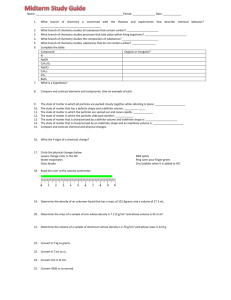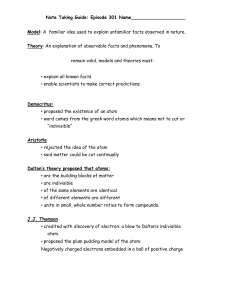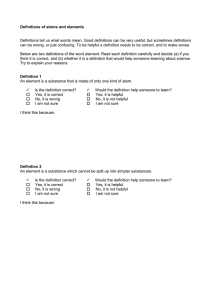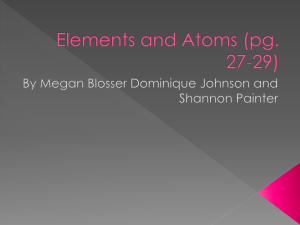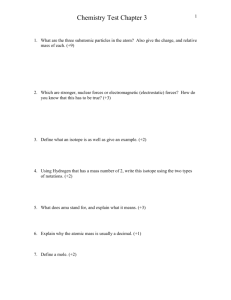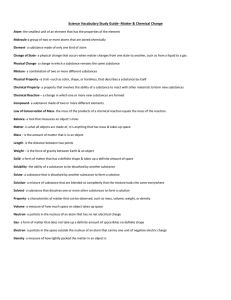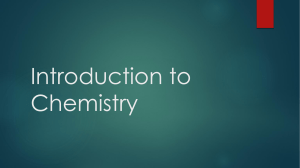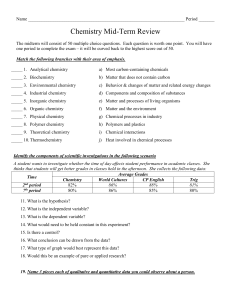Name: _________________________________Period: _______________ Date: ____________
advertisement
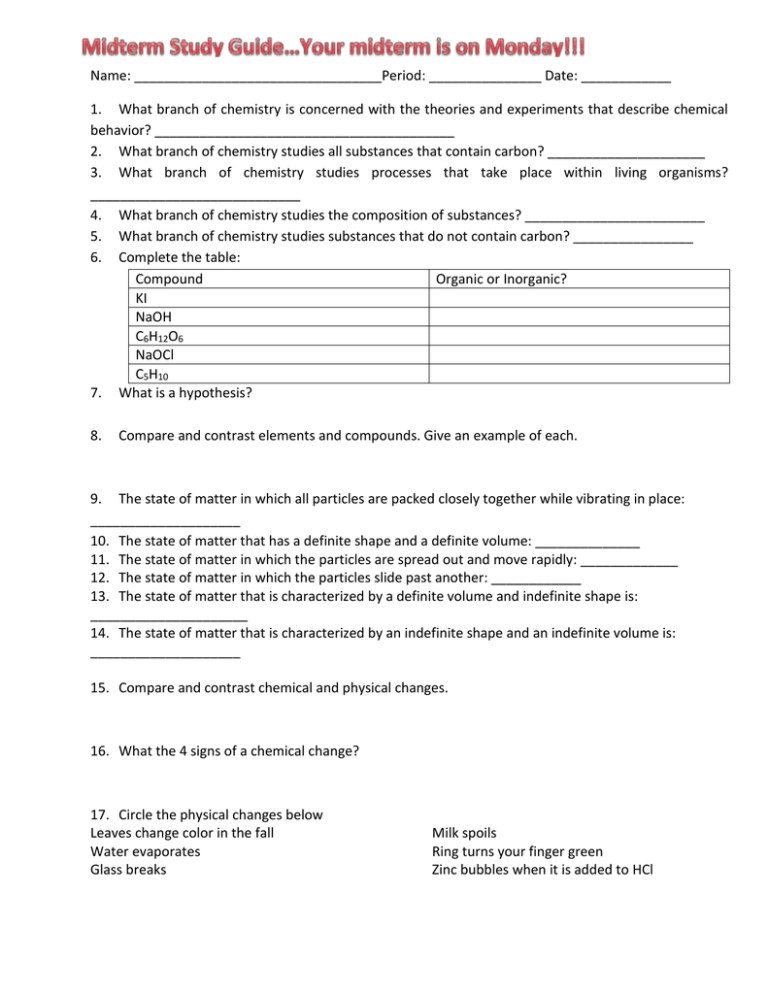
Name: _________________________________Period: _______________ Date: ____________ 1. What branch of chemistry is concerned with the theories and experiments that describe chemical behavior? ________________________________________ 2. What branch of chemistry studies all substances that contain carbon? _____________________ 3. What branch of chemistry studies processes that take place within living organisms? ____________________________ 4. What branch of chemistry studies the composition of substances? ________________________ 5. What branch of chemistry studies substances that do not contain carbon? ________________ 6. Complete the table: Compound Organic or Inorganic? KI NaOH C6H12O6 NaOCl C5H10 7. What is a hypothesis? 8. Compare and contrast elements and compounds. Give an example of each. 9. The state of matter in which all particles are packed closely together while vibrating in place: ____________________ 10. The state of matter that has a definite shape and a definite volume: ______________ 11. The state of matter in which the particles are spread out and move rapidly: _____________ 12. The state of matter in which the particles slide past another: ____________ 13. The state of matter that is characterized by a definite volume and indefinite shape is: _____________________ 14. The state of matter that is characterized by an indefinite shape and an indefinite volume is: ____________________ 15. Compare and contrast chemical and physical changes. 16. What the 4 signs of a chemical change? 17. Circle the physical changes below Leaves change color in the fall Water evaporates Glass breaks Milk spoils Ring turns your finger green Zinc bubbles when it is added to HCl 18. Read the ruler to the nearest centimeter: 19. Determine the density of an unknown liquid that has a mass of 101.9grams and a volume of 27.3 mL. 20. Determine the mass of a sample of zinc whose density is 7.113 g/cm3 and whose volume is 45.3 cm3. 21. Determine the volume of a sample of aluminum whose density is 2.70 g/cm3 and whose mass is 32.9 g. 22. Convert 6.7 kg to grams. 23. Convert 6.7 mL to cL. 24. Convert 0.6 m to hm. 25. Convert 4500 cs to second. 26. _______________ and __________________ are located in the nucleus; _________________ surround the nucleus. 27. _______________ discovered the electron in the cathode ray experiment. 28. Rutherford discovered the ___________________ in the gold-foil experiment. 29. Rutherford concluded that the _______________ makes up most of the mass of the atom. 30. ______________ proposed the idea that everything is made up of small particles and coined the term “the atom. 31. Thompson’s model of the atom is called ___________________________________ model. 32. Bohr stated that electrons move in ____________________________________. 33. ____________________________________ model of the atom is the accepted model of the atom today. 34. Complete the table below: Particle What is the Charge? Protons Electrons Neutrons
